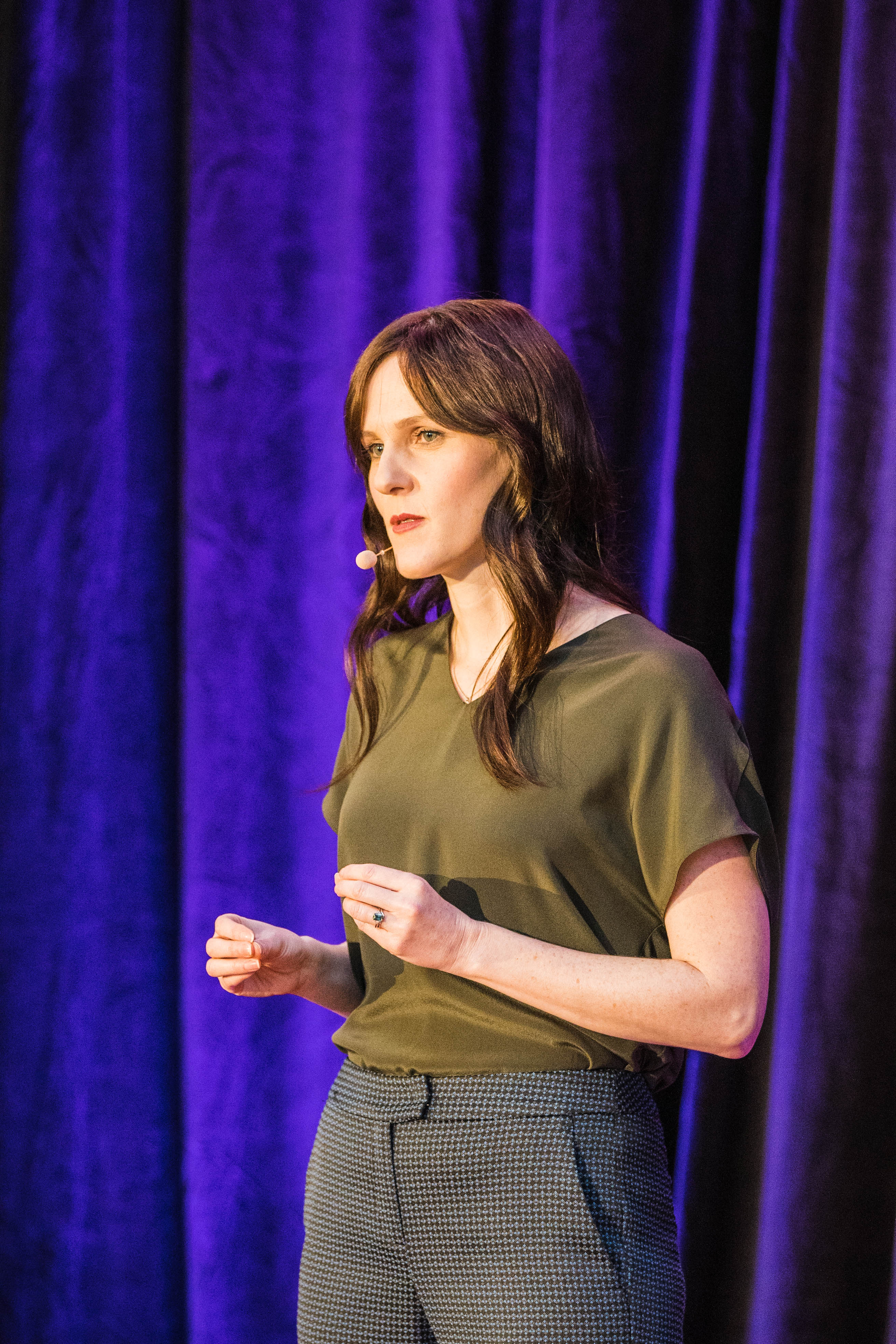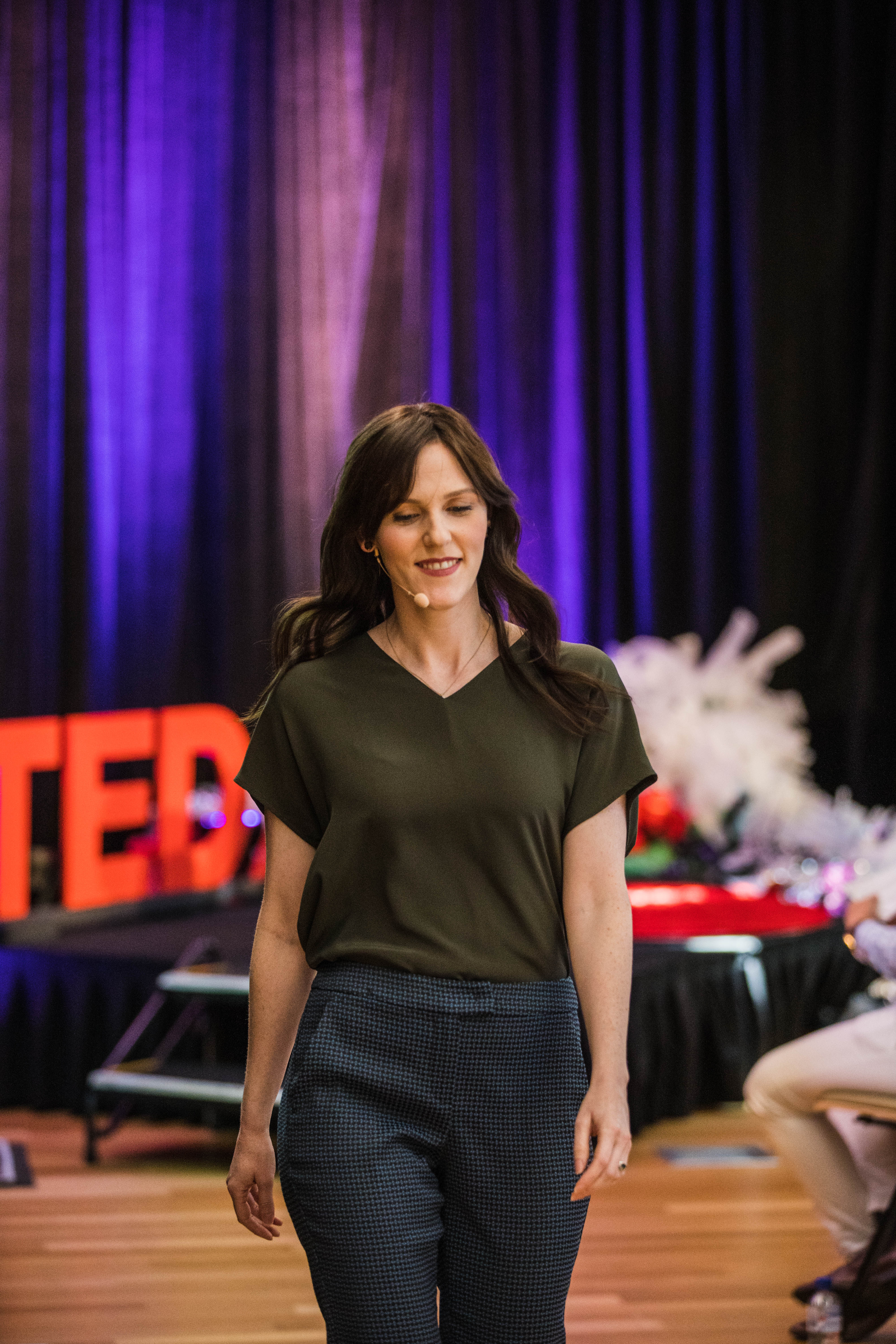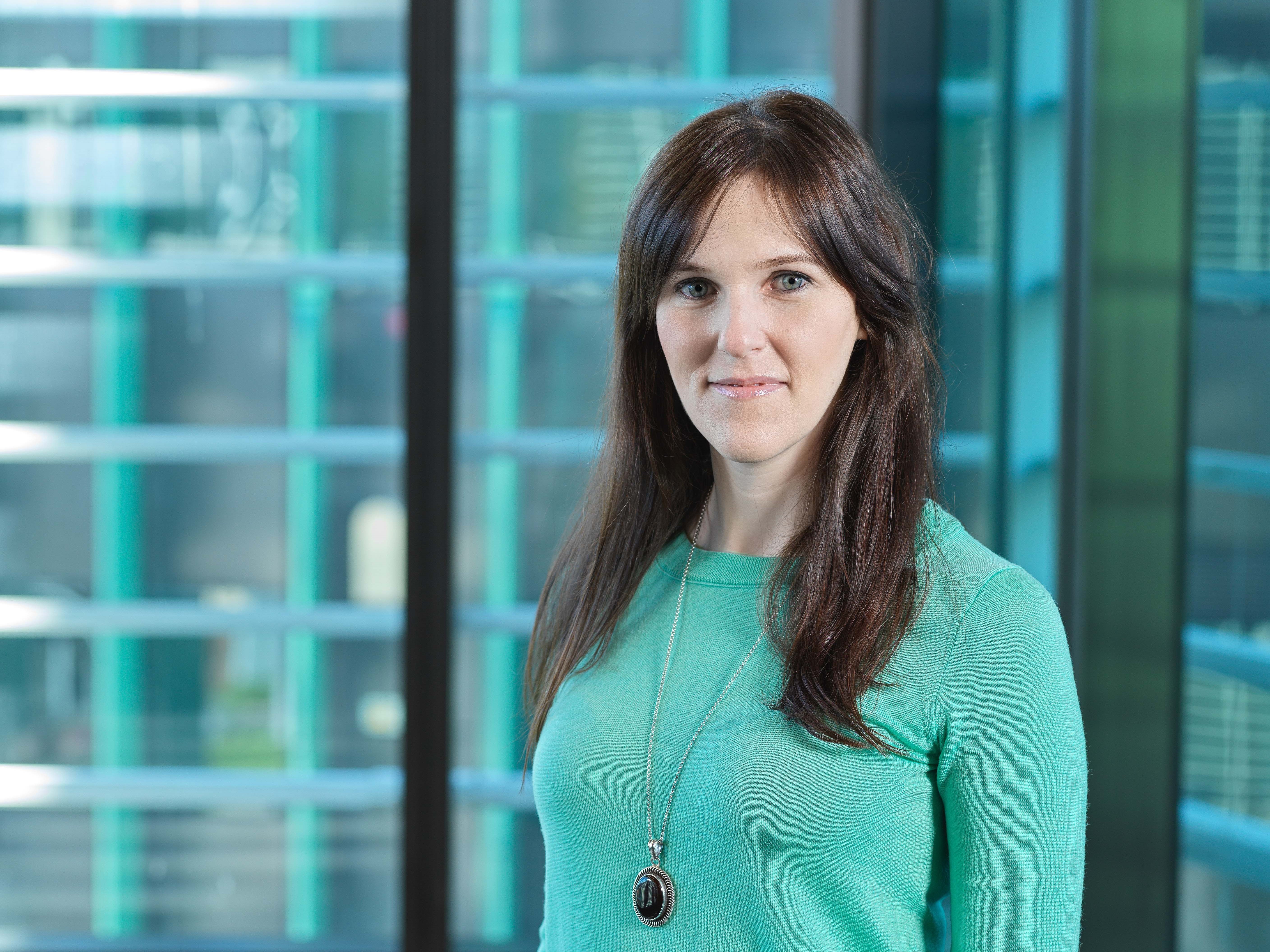“I think the most challenging thing for me has been having to confront my own imposter syndrome!”
To those who are not aware of you, What do you do?
I wear a few different hats: I am a Clinical Psychologist, a researcher and a speaker/educator. All my work is motivated by the desire to help people overcome the obstacles that get in the way of living their best life. While I work clinically with a range of different psychological issues (e.g. depression, anxiety, stress, eating issues), my main passion is addictions, particularly behavioural addictions like gambling, pornography, video gaming, and tech/screens. Many people struggle with these vices that give them escape and comfort in the short-term, but ultimately hold them back from living the life they want in the long-term, and I find it so rewarding to be able to help them overcome that.
A lot of these vices (particularly screens) are also completely new territory for our brains, and I think it’s really crucial for us as a society to understand the impact they’re having on our mental health and wellbeing; that’s essentially why I started speaking on the topic. I recently did a TEDx talk for QUT on the long-term consequences of living a life of constant distraction.
How did you get started & what inspired you?
Still, In a lot of ways, I still feel like I’ve only just left the starting block! In terms of getting into a helping profession, I got started by doing work experience in a clinical psychology research team after I finished undergrad Psychology, and I realised I really enjoyed working one-on-one with people. That led to me undertaking a Doctorate in Clinical Psychology so that I could become a practising Clinical Psychologist, and once I finished that I joined a private practice (but also continued working in research – I love the variety!). The speaking side of things has been a gradual evolution; a few random opportunities to speak on the topic of gaming addiction came up, and it just developed from there. I have always been incredibly inspired by other TED talks and public speakers and their ability to communicate really important messages in such clear, succinct and eloquent ways. There’s something really magical in watching a great talk and connecting so strongly to what the speaker is saying; it’s a gift I would really like to be able to give.
What was the most unique challenge you faced when beginning?
I get inspired to keep on doing what I love, & face my fears. Even after doing my Tedx talk last year, the most challenging thing for me has been having to confront my own imposter syndrome! As a Psychologist, it’s ingrained within me to be continually learning, improving and perfecting my skills. While I really enjoy this part of being a Psychologist (I love constantly learning new things), it has also been a double-edged sword, and I’ve found it a real challenge to feel like I know ‘enough’ to do speaking and share my knowledge. I’ve definitely become more confident over time, but there’s always that annoying little thought that it’s all a big fraud and you’ll be “exposed” or “found out”. The most important thing I’ve learned from it though is to keep going and not let it stop me from pursuing the things I want to do. Ironically, this has actually helped the most! The more I push forward, the more I shake off the self-doubt. It’s all a mindset game.

What mindset distinguished you from others who were doing the same thing?
Early on in life, I found it really difficult to separate myself from my achievements, feeling like both were inextricably intertwined. This is, of course, great when you’re doing well (you feel fantastic about yourself!), but not so great when you encounter challenges or disappointments. You can end up feeling like you’ll never be ‘good enough’, or that unless you can do something perfectly, it’s not really worth your time. However, I’ve tried really hard to become comfortable with not succeeding, or not doing things perfectly, or not getting things right the first time, or just doing a ‘good enough’ job. When you’re able to embrace being sub-par, mediocre and average it is so liberating! It also makes the moments of success so much more meaningful.
What is success to you?
I always thought of a successful life as one of satisfaction and contentment; one lived with meaning, purpose, and in accordance with one’s values. Using that definition, ‘success’ essentially looks different for every person. In my clinical practice, the happiest people I see are ones living life like this – according to their own values and ideals, not someone else’s or society’s.
What do you think is the main reason why some people fail when going after their vision?
To me, the word ‘failure’ is not one I really encourage. It seems so final – “I tried to do X/Y/Z, and I failed”. It also makes it seem like we’re defective – “I failed, so I must not have been good enough”. This kind of thinking makes us feel miserable about ourselves and can cause us to stop pursuing what’s important to us, which doesn’t get us anywhere (and makes us feel even more miserable in the process).
Instead, I try to reframe ‘failure’ as “I just haven’t succeeded yet”, and think of it as a problem that needs solving – this helps us to respond with resilience and determination, rather than defeat. I think that failure, in this sense, is a necessary part of the process. We’re always going to encounter barriers and hurdles that get in the way of what we’re moving towards, but they don’t have to be dead ends. I think this is an especially important concept for people to understand, particularly in our current ‘instant gratification’ world. We are getting so used to getting what we want instantly, that we give up unbelievably quickly in the face of a challenge. Learning how to respond to challenges with resilience and perseverance is such a valuable and necessary skill.
What would you say to someone who is trying to discover themselves & how did you discover who you are?
We should practice compassion and focus on a purposeful self-reflection! Self-reflection is the process of exploring our ‘inner world (our thoughts, feelings, desires and fears), and we can discover who we are if we do this regularly with purpose and compassion. ‘With purpose’ means that we do it with intention and awareness (with the aim of getting to know ourselves better), and ‘with compassion’ means that we do it with self-love and kindness (rather than criticism or judgement). For example, instead of ruminating or stewing over negative thoughts, e.g. “I should be better”, “I’ll never be any good”, “I really sucked at that”, compassionate self-reflection might look like, “Wow, I’m noticing I’m having a lot of negative thoughts. I wonder why I’m so hard on myself? What can I learn about myself here?”
The more we engage in this process, the more we learn. Listen to your thoughts; let yourself explore the things you like and don’t like and ask yourself why you like or don’t like those things. Think about things you feel strongly about and ask yourself why they make you feel that way. Deep inside the answers to those questions will be your values – things that are really important to you and guide your decision-making and responses. Values might be to do with honesty, respect, the importance of family/friends, the importance of health, or career, or a host of other things. There is no ‘right’ and ‘wrong’ when it comes to values – everyone’s values are as unique as they are valid.

I discovered myself and my values through many years of self-reflection, talking and exploring my inner world, both on my own, with loved ones and through my own personal therapy journey (I specifically undertook a psychoanalytically-oriented kind of therapy, where the aim is to get to know yourself better). It’s certainly not an easy process – it forces you to look at all parts of yourself, including parts that can feel pretty uncomfortable. But ultimately, it is satisfying and rewarding in a way that is difficult to put into words.
What is the best piece of advice you would like to share with everyone?
One of my favourite quotes by philosopher Will Durant (one that is often misattributed to Aristotle!): “We are what we repeatedly do. Excellence, then, is not an act, but a habit”.
“We are what we repeatedly do. Excellence, then, is not an act, but a habit”.
Will Durant
The first part of the quote is the bit I like the most – it always reminds me that doing what we want to do and being who we want to be is not a one-off act, it takes repetition. For example, if I want to be someone who’s generous, or tidy, it’s a great start for me to perform one act (e.g. helping out a friend, or tidying up my dishes as soon as I’m done with them), but it’s something I’d want to do repeatedly, until it became regular and habitual, to really feel like I was a ‘generous person’ or a ‘tidy person’. It’s a nice reminder that being who we want to be is a constant journey, and we should always be looking for opportunities to embody our values.

Connect with Dr Tania below.


